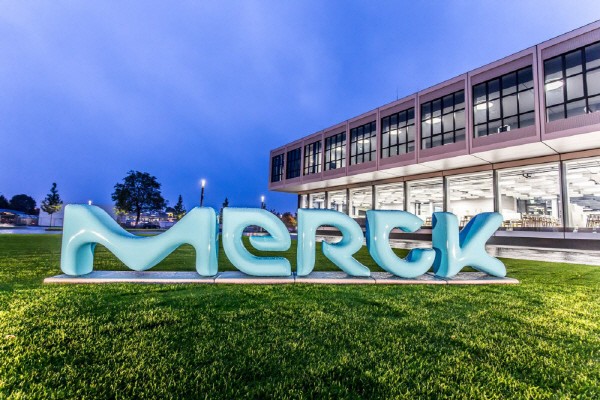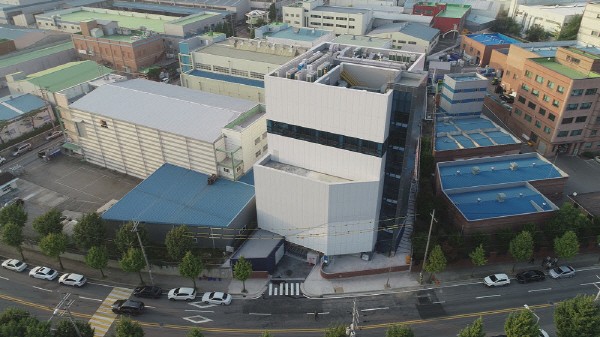
Merck Germany, Merck KGaA, produces chemical mechanical polishing/planarization (CMP) materials that polish and planarize semiconductor wafers in Korea. This is the first time that the company has announced that it will proceed from research and development (R&D) of CMP core materials to production of them in Korea. Merck plans to start the sale of prototype materials, then plans to establish a mass production system soon. It also plans to supply domestic semiconductor companies.
This move is a stepping stone to respond to the rapidly increasing demand for CMP materials in Korea. A ferocious competition is expected to follow in the market due to Merck’smove. The materials, parts, and equipment in the semiconductor and display fields are another noteworthy cases of global companies’ attempt to enter the Korean market.
Merck Korea, announced on the 14th that it is building facilities not only capable of CMP material R&D but also capable of mass production at the Korea Advanced Technology Center (K-ATeC) since last June. K-ATeC is located at the Songtan Industrial Complex in Pyeongtaek City, Gyeonggi Province.
An official from Merck Korea said, “All the sold and distributed CMP materials were imported, but since the opening of K-ATeC last year, we are able to expand the production of related materials such as tanks. We conduct research and produce CMP materials simultaneously at K-ATeC.”
Merck Korea started to supply prototype materials to domestic semiconductor companies. After consulting with the head office, Merck Korea expects to begin the mass production system in near future; however, it has not announced the scale of the production.
CMP refers to a polishing process for flattening semiconductor wafer circuit. The polishing process is done by rotating CMP slurry-like mixture between a wafer and a pad. Merck invested 35 billion won to build K-ATeC last year in order to research post-CMP cleaning materials for the wafers after undergoing CMP slurry process.

Merck’s preparation for mass production of CMP materials at K-ATeC seems to be a strategy to respond to the rapidly increasing demand in Korea. CMP materials require different properties by countries and semiconductor manufacturers. Therefore, in order to satisfy these demands, it is advantageous to secure both development and production system to take control of the market. This allows more stable and faster supply than imports, and is also able to respond to the demands of customers, such as change in properties.
Synergy with the K-ATeC R&D organization is also expected. K-ATeC has been adjusting product development and research personnel to suit domestic customers since its opening. When producing CMP materials in Korea, Merck is able to secure one-stop supply chain customized to customers from material development to production.
Merck’s decision to produce CMP materials inevitably has impacted both directly and indirectly on the CMP materials market. The domestic companies have to come up with a new strategy to become competitive as Merck enhanced its competitiveness in production and distribution. The competition for CMP market expects to be intensified as a Japanese company, Showa Denko, is known to set up its CMP material plant in Korea as well.
An official from Merck Korea said, “The extension of the Poseung plant in Pyeongtaek, which not only mass produces CMP materials but also produces prototype parts for LCD and OLED materials, will be completed as early as this year. We will continue to expand the production of semiconductor and display materials in Korea.”
According to market research firm Techset, the estimated worth of CMP slurry market is $1.3 billion as of last year, and the market’s compound annual growth rate is expected to grow 6.2% until 2024.
Meanwhile, ‘Koreanization’ strategy of global materials, parts, and equipment companies are expected to expand continuously. While global equipment companies, Lam Research and Tokyo Electron Limited (TEL), have enhanced Korean R&D and customer support, companies from the US and Japan’s production of next-generation materials, such as extreme ultraviolet (EUV) and photoresist, are expanding in Korea.
By Staff Reporter Kwon Dongjun (djkwon@etnews.com)